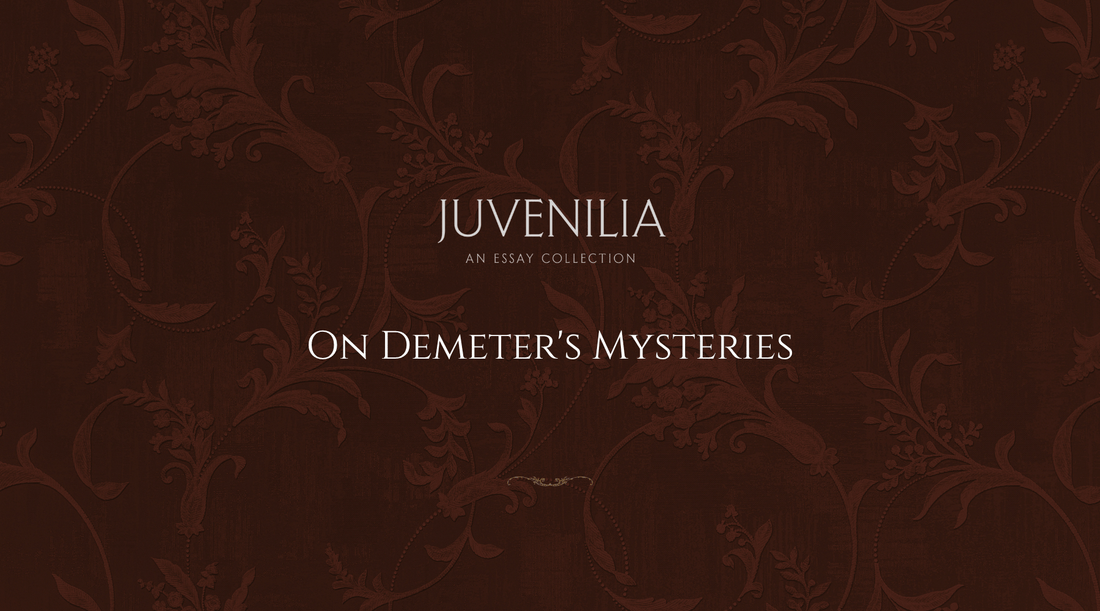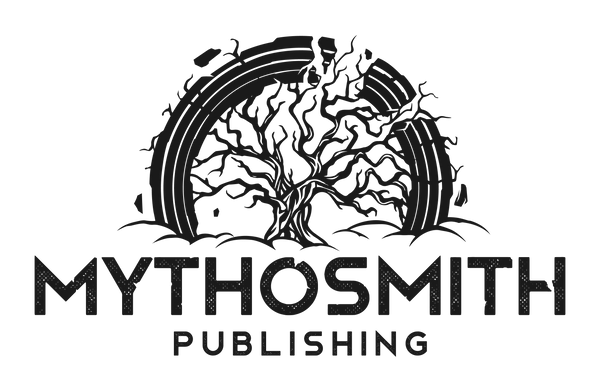
On Demeter's Mysteries
Demeter’s origins are from the Neolithic period, 10,000 years ago, and emerged as a result of the beginning of agriculture. Demeter is associated with motherhood, grain, and fertility, though, linguistically there is debate on what her name means. Homer was not interested in Demeter all that much, and so because she is in the background, a lot of her origins and myths are not explored up front and centre like many of the other gods and goddesses; she’s quite obscure in the sense that she’s not popular, and so information has been lost and not passed down to us.
Her lack of stories itself is mysterious. She is overlooked in many aspects: she is not a dedicated patron goddess of any particular city like many of the other gods and goddesses, though she was prevalent in Thebes and certain cities around Sicily. Despite her area of expertise being an absolute essential (sustenance) it’s odd that she is not more widely revered seeing that she has everything to do with ensuring the crops are successful and is literally one of the oldest of the deities.
I’m sure people at the time would have been far more familiar with Demeter simply because she was so enriched in the culture that she would not have been very mysterious. In fact, perhaps the reason so little is left about her is simply because no written work would have been necessary at the time to understand, so in an odd way, perhaps the lack of sources is a testament to how prolific she really was, where lesser known gods and niche gods needed words and stories to be remembered. It could have been a case of taking for granted what is known, only to be later forgotten.
Men were excluded from the festivals, such as Thesmophoria, and so at least 50% of the population was not privy to the goings of Demeter’s mysteries. Then, there’s the Eleusinian Mysteries, admittance to the cult being a matter of proximity and discretion. Initiates were required to keep a vow of silence—to not speak about what transpired, and so much of what we have is archaeological evidence, and testimonies that are, at best, speculation, and at worst, simply inaccurate due to the shunning of Pagan ways. There is much in the way of evidence, but the problem is that there is so much evidence that it’s controversial at times. The mysteries themselves are symbolic of the mystery shrouding Demeter. Only those that needed her guidance knew her well.
(A personal aside: I am personally curious if she merged with Gaia? Who came first, Gaia or Demeter? Obviously, Gaia is seen as the Primordial goddess, but if Demeter’s origins were Neolithic, were Gaia’s as well? I know that Cybele is the Anatolian version, and I think it makes sense if perhaps both Gaia and Demeter are split aspects of Cybele. I am intrigued by the Hittites and I started doing some of my own research on the culture last year, so it’s incredibly fascinating to be able to see all the overarching mythology.)
